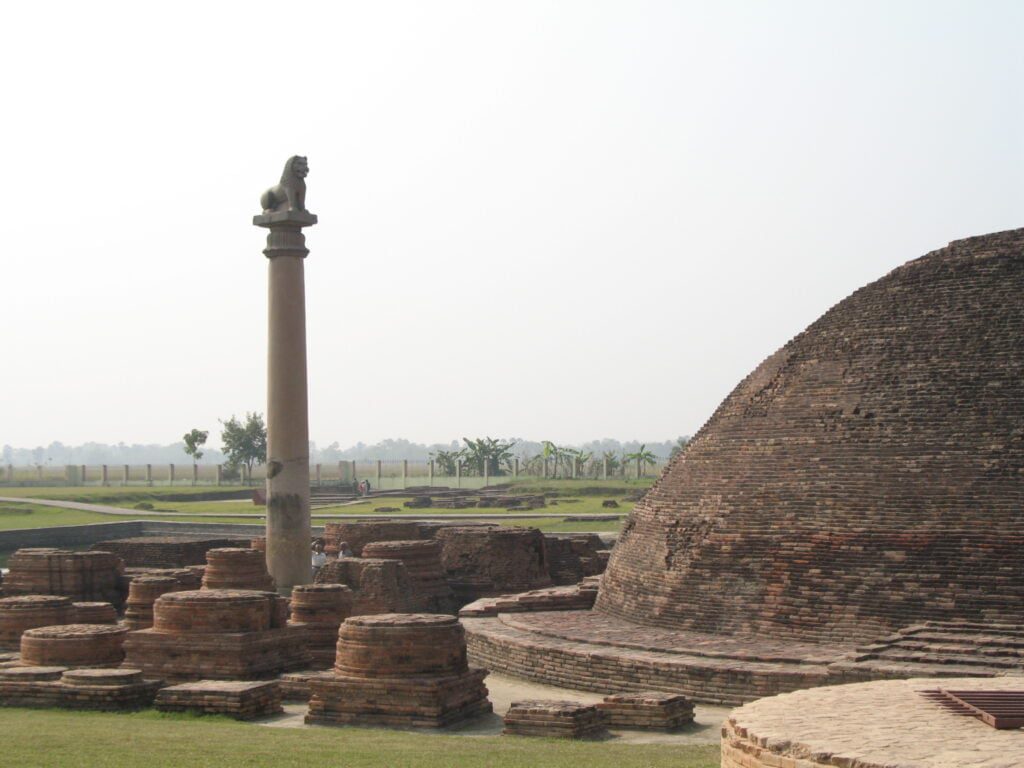The Rise and Fall of the Licchavi Republic: A Glimpse into Ancient India’s Democratic Experiment
Emerging from the mists of the Iron Age, the Licchavi Republic stands as a unique and fascinating chapter in ancient Indian history. For centuries, this non-monarchical state thrived in the fertile plains of the Ganges, offering a stark contrast to the surrounding kingdoms ruled by hereditary kings. Today, its legacy continues to resonate, prompting questions about the viability of democracy in diverse contexts and the challenges inherent in maintaining its ideals.
From Tribe to Republic: The Seeds of Democracy
The Licchavis, an Indo-Aryan tribe, established their republic in the 6th century BCE in the region of Vaishali, now part of Bihar, India. Unlike surrounding kingdoms, power wasn’t vested in a single ruler but resided within a council called the “Ganasangha.” This council comprised elected representatives from the prominent Kshatriya families, holding regular assemblies to discuss and decide matters of state.
The Ganasangha: A Democratic Apparatus
The functioning of the Licchavi Republic remains shrouded in some mystery, with details gleaned primarily from Buddhist and Jain texts. However, historians paint a picture of a system where decision-making was participatory. Leaders were elected, and officials were held accountable. The assembly debated issues openly, with voting likely employed to reach a consensus. While details of voting rights and representation remain unclear, the Licchavi Republic stands as a rare example of an early democratic experiment in the ancient world.
The Vajjika League: Power and Prosperity
The Licchavis didn’t exist in isolation. They were part of the Vajjika League, a confederation of several republics and smaller kingdoms. This alliance allowed them to resist the expansionist ambitions of powerful empires like Magadha, maintaining their independence and economic prosperity. Trade flourished within the league, and Vaishali became a significant commercial center.
Demystifying the System
While details remain shrouded in the mists of time, historical accounts offer glimpses into the Licchavi system. The council comprised 7,070 members, a number signifying inclusivity and diverse representation. Decisions were reached through consensus, fostering a culture of debate and compromise. Notably, the Licchavis were not averse to dissent, allowing for alternative viewpoints to be heard and considered.
Beyond the Council
The Licchavi Republic extended beyond the council chambers. Local communities enjoyed considerable autonomy, governed by their own councils and elders. This decentralized structure ensured responsive governance and addressed the needs of diverse populations.
A Flourishing Society
The Licchavi Republic fostered a vibrant society where agriculture and trade thrived. The fertile Gangetic plains provided abundant resources, while strategic trade routes facilitated commerce with neighbouring kingdoms. The Licchavis were renowned for their mastery of metallurgy and craftsmanship, evident in their sophisticated tools, weapons, and ornaments.
Intertwined with Faith
The Licchavi Republic witnessed the rise of Buddhism, with Vaishali, its capital, hosting the Second Buddhist Council. The Buddha himself interacted with the Licchavi leaders, engaging in philosophical debates and advocating for social justice. This religious influence shaped the Licchavi ethos, emphasizing non-violence, compassion, and ethical conduct.
A Legacy of Resistance
Despite their democratic ideals, the Licchavis faced constant threats from neighbouring monarchies, particularly the Magadha Empire. They fiercely defended their republic, forming alliances with other kingdoms and employing skilled military tactics. However, their internal divisions and external pressures ultimately led to their downfall in the 4th century BCE.
Challenges and Conflicts: The Cracks in the Republic
Despite its successes, the Licchavi Republic faced internal and external threats. The democratic process could be slow and cumbersome, leading to indecisiveness and political fragmentation. Additionally, the Kshatriya-dominated council excluded other social groups, potentially creating discontent among the broader population. Externally, the Magadha Empire posed a constant threat, eventually culminating in a series of wars that weakened the Licchavis.
The Fall of the Republic: A Legacy Endures
By the 5th century BCE, the Licchavi Republic had succumbed to Magadha’s might. However, its legacy lived on. The concept of a republic, where power resided with the people, found echoes in later Indian history. The Mauryan Empire, under Ashoka, adopted elements of republican administration. Additionally, the ideals of the Licchavi Republic continue to inspire democratic movements and discussions in modern India. Though the Licchavi Republic faded into history, its legacy continues to resonate. It serves as a powerful reminder of the potential for democratic governance, even in ancient times. Its emphasis on inclusivity, consensus, and local autonomy remains relevant in contemporary discussions of political systems.
The Enduring Questions: Relevance and Insights
The Licchavi Republic’s story raises several questions that remain relevant today. How can democratic systems ensure inclusivity and represent diverse voices? How can we balance participation with efficiency in decision-making? What are the challenges posed by external threats to democratic institutions?
Final Thoughts
The Licchavi Republic, though long gone, continues to offer valuable lessons for understanding the complexities of democracy, its strengths and weaknesses, and its enduring appeal as a system of governance. As we grapple with the challenges of democracy in the 21st century, remembering this ancient experiment can provide valuable insights and inspire us to strive for a more just and equitable world.



I like the helpful info you supply to your articles.
I will bookmark your blog and take a look at again right here frequently.
I’m slightly sure I’ll be informed lots of new stuff
proper here! Best of luck for the following!